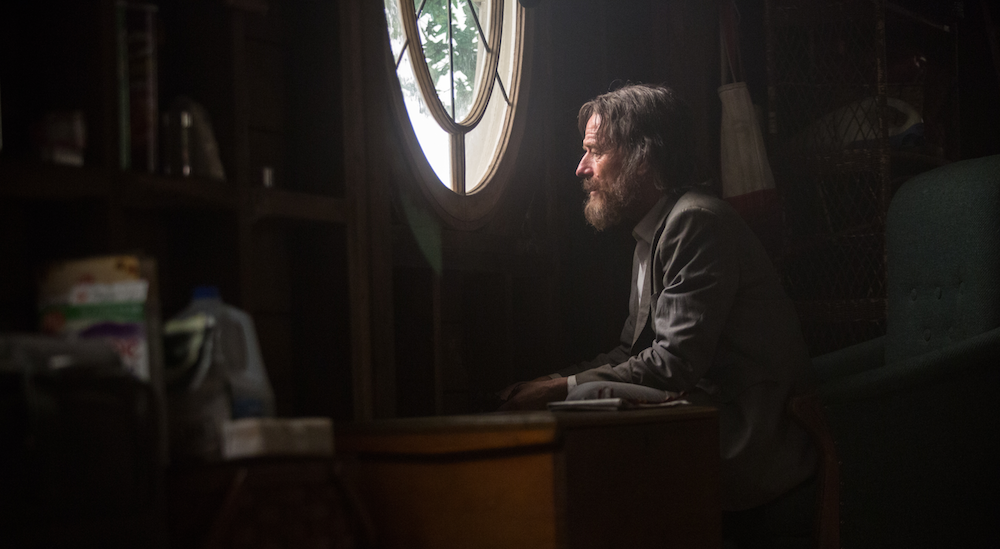Haven’t we all thought about running away from our responsibilities? It’s a nice thing to contemplate after a hard day at work. But for Howard Wakefield, a series of decisions one day leads him to do just that. Bryan Cranston shines as usual in a film that seems tailor-made for his brand of sadness tinged with humor and wit.
After getting in a fight with his wife Diana (Jennifer Garner) and a long day at work followed by a commuter train blackout, Howard Wakefield (Cranston) feels like his day can only get worse. After begrudgingly stomping home, Howard decides to freak out his wife by hiding in their attic – just for a few hours. Unfortunately, that decision ultimately leads to Howard living in the attic for months, foraging for food and becoming more and more isolated. With anyone else in the role, the film would be insufferable as you watch Howard arrogantly and self-importantly leave his family for this so-called “better life” in the attic. Cranston, however, tinges the role with his trademark humanity that makes you pity Wakefield for his fallacies – at least at first.
It’s not often you see a man tackle a mid-life crisis by hiding out in the attic. Armed with binoculars and meager food, Howard feels like he’s getting the best of both worlds. He no longer has to interact with his wife or teenage daughters but can continue to spy on them from the safety of the room over the garage. As his hair and beard grow out and he begins dumpster diving for food, you watch Howard dig his hole deeper and deeper. Through voiceovers, we hear him slowly but surely losing his grip on reality. It’s fascinating to watch him cycle through thinking his new residence is funny, to glorified, to lonely. As he says, “I never left my family. I left myself,” convinced he’s a better person now that he lives in the attic. In between we get flashbacks to his previous life. As the film progresses, those flashbacks become more and more honest until finally we see how Howard and his wife Diana met. It’s a courtship so startling that you finally see Howard’s true colors laid bare, a discontent, manipulative man who clearly takes pleasure out of outsmarting others.
By the end of this essentially-one-man-show, there’s not much left to redeem Howard. Most of all, you just want to know how it ends. He can’t live in the attic feet from his home forever…right?! As Howard begins to realize the same thing, we see him putting the pieces in place to end this escape from reality. As the film builds to the moment he reveals himself to his family, we’re left with a frustratingly open ending. It feels much more like a cop out than a statement and sours a film that otherwise gives us a riveting solo performance from Cranston.

